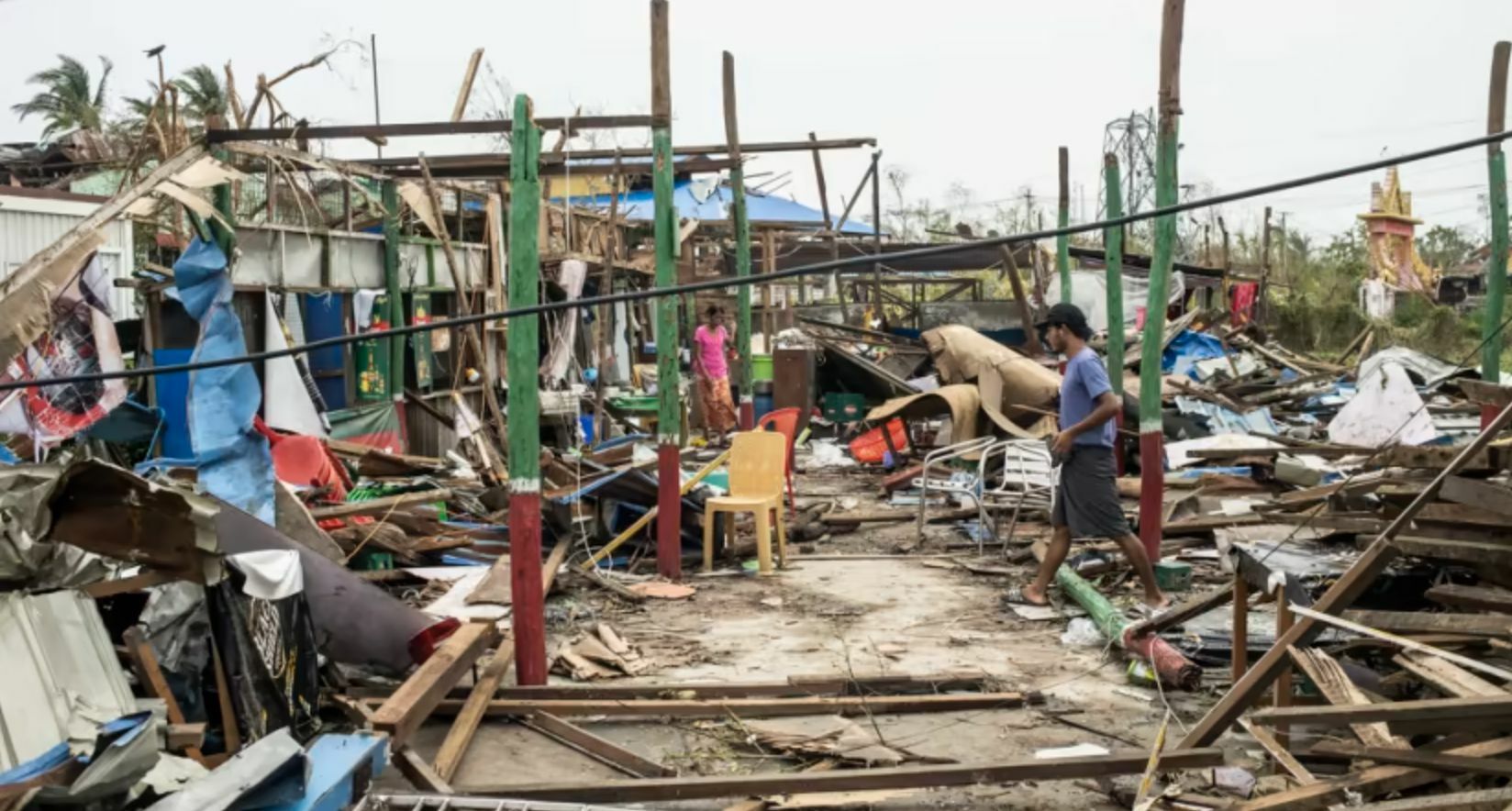Cyclone Mocha death toll rises to 81 in Myanmar, villagers await aid

Cyclone Mocha claimed at least 81 lives in Myanmar, with local leaders and state media warning that the death toll could rise further. The cyclone hit the country on Sunday, bringing winds of up to 195 kilometres per hour, destroying power pylons and fishing boats.
At least 46 people died in the Rakhine state villages of Bu Ma and Khaung Doke Kar, which are inhabited by the persecuted Rohingya Muslim minority. Thirteen people were killed when a monastery collapsed in Rathedaung township, while a woman died when a building collapsed in a neighbouring village, according to Myanmar state broadcaster MRTV. Over 100 people are still missing, said Karlo, the head of Bu Ma village.
In the aftermath of the cyclone, residents searched for family members who had been swept away by the storm surge. Nine people died in the Dapaing camp for displaced Rohingya near Sittwe, according to the camp’s leader, who added that the camp was cut off and lacked supplies. He said…
“People cannot come to our camp because bridges are broken… we need help.”
Other casualties included one person in Ohn Taw Chay village and six in Ohn Taw Gyi, as reported by local leaders and officials.
Cyclone Mocha is the most powerful cyclone to hit the area in over a decade, causing widespread damage to villages, uprooting trees, and disrupting communication across much of Rakhine state. China has offered emergency disaster relief assistance, according to a statement on its embassy in Myanmar’s Facebook page. The United Nations refugee office is investigating reports that Rohingya living in displacement camps were killed in the storm and is working to start rapid needs assessments in the hardest-hit areas of Rakhine state.
The Rohingya, widely viewed as interlopers in Myanmar, are denied citizenship and healthcare and require permission to travel outside their villages in western Rakhine State. Many others live in camps after being displaced by decades of ethnic conflict in the state. In neighbouring Bangladesh, officials reported no deaths from the cyclone, which passed close to sprawling refugee camps housing nearly one million Rohingya who fled a Myanmar military crackdown in 2017.
Non-profit Climate Analytics suggested that rising temperatures may have contributed to Cyclone Mocha’s intensity. The group’s Peter Pfleiderer said…
“We can see sea surface temperatures in the Bay of Bengal in the last month have been significantly higher than they were even 20 years ago. Warmer oceans allow storms to gather power, quickly, and this has devastating consequences for people.”
As communication is gradually being restored in Sittwe, home to around 150,000 people, roads are being cleared, and Internet connections are being re-established.
State media released photos of aid being loaded onto a ship in Yangon, bound for Rakhine. However, Rohingya villagers told AFP that they had not yet received any assistance.
Kyaw Swar Win, 38, from Basara village, said…
“No government, no organisation has come to our village. We haven’t eaten for two days… We haven’t got anything and all I can say is that no one has even come to ask.”
Latest Thailand News
Follow The Thaiger on Google News:


























